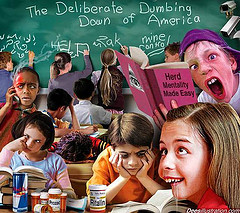Mar 18, 2010 Comments Off on It’s ALL About Fit
It’s ALL About Fit
 A while back, I made a rap video called, “It’s All About Fit” (see below).
A while back, I made a rap video called, “It’s All About Fit” (see below).
My point there was that, when hiring someone, organizational fit was the key ingredient to that person’s success in the role as well as the organization’s “success” in nurturing and retaining a valuable employee over the long haul.
“Fit schmit,” I hear you say. “All I care about is whether or not they can do the job. Corporate culture schmorporate culture – at the end of the day, performance and results are what matter.”
Obviously, the person needs the skills and experience required by the job – you don’t hire a Java programmer who can’t really program in Java just because they get along with everybody – but that’s really just another way of saying that the person’s capabilities need to fit the requirements of the position.
The problem is that for many jobs finding someone whose skills fit is easier than finding someone whose skills fit AND whose work ethic, personal demeanor, and values fit in with those of the immediate team and the culture as a whole. Because the former case is easier, people usually hire based on skills and hope for the best.
It’s also why HR professionals often say, “Hire for skills; fire for fit.”
I’m bringing this up because I spent a couple days on a client site interviewing and leading discussions with folks at many levels of the organization. The more time I spent with them, the more I liked them as people and the more I appreciated the organization itself. I found myself thinking, “I really want to work with these folks and, to the extent I can, be a part of what their trying to do.”
All of which made me think that, for a business to succeed, you not only need to hire people who support the mission, share the vision, and fit into the culture, but you also need to find clients that do the same.
It’s always hard to say “no” to business, but isn’t it harder to have to work on projects you don’t really care about or with people that you don’t trust, admire, or respect?
Isn’t it easier to do inspired work when you are actually inspired by the people you’re working with?
That being said, here is the “Fit” video for your viewing and reviewing pleasure:
Image Courtesy of LShave.
 I’ve been a “
I’ve been a “



